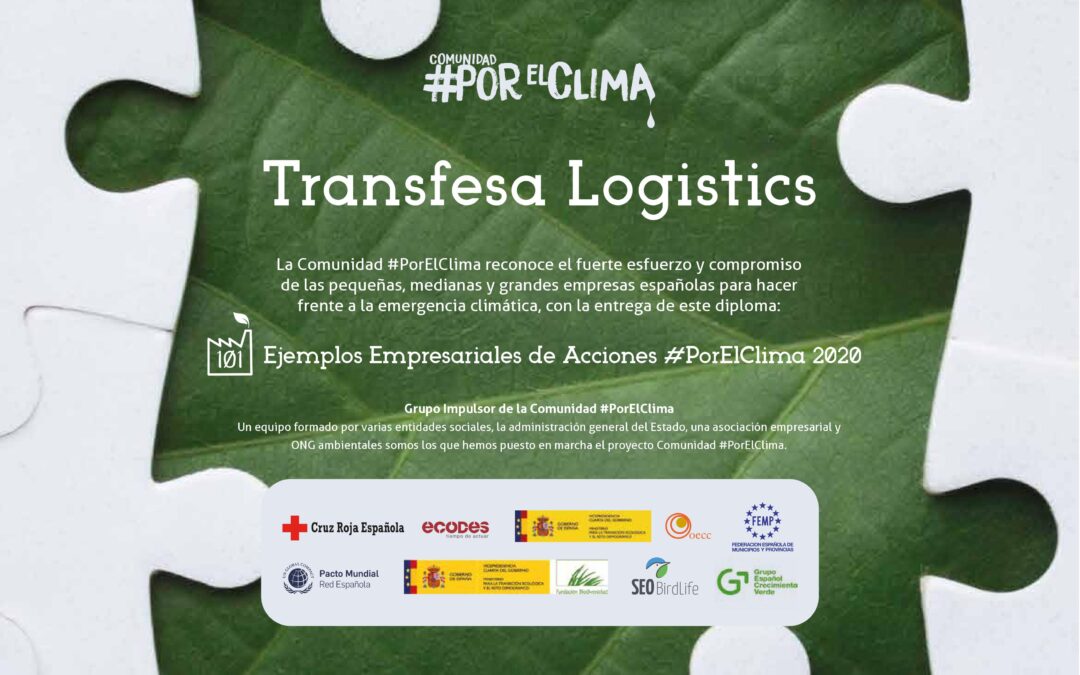In this third edition, the #PorElClima Community has selected the logistics operator from among the companies most committed to the fight against climate change for its work in promoting the railroad as the most sustainable means of transport and its contribution to the decarbonisation of the transport sector.
Transfesa Logistics has been selected in the third edition of the “101 Business Examples of #PorElClima Actions”. This distinction, which highlights the work of companies in the field of sustainability and the environment, is awarded by The #PorElClima Community, a benchmark multi-stakeholder alliance in the field of climate change that includes numerous entities and organizations of recognized prestige in the matter like the Ministry for the Ecological Transition and the Demographic Challenge (MITECO), the United Nations Global Compact or the Spanish Green Growth Group, among others.
Actions to reduce the carbon footprint
In the case of Transfesa Logistics, we can highlight two main aspects from the company’s numerous activities to curb climate change. On one hand, upholding low-emission mobility, which is reflected in its own DNA: the transport of goods by train as the most sustainable means of transport, with a carbon footprint nine times lower than via road transport. On the other hand, its work to raise awareness about the need to increase the rail fee due to its many environmental benefits. To do this, Transfesa Logistics collaborates with state and non-state organizations in the definition of regulations and the execution of awareness-raising actions to position the train as a sustainable alternative for the transport of goods.
A boost for sustainable commitment
For Isabel Núñez, Transfesa Logistics Environmental Manager, “this distinction not only marks a milestone in the organization that highlights its environmental commitment and its commitment to be a benchmark in terms of sustainability, it also positions us as the best ally for our clients and their own carbon footprint reduction objectives in the value chain”. Núñez also highlighted the importance of rail freight transport as a key element in the sector’s decarbonization, which is currently responsible for 25% of total greenhouse gas emissions. “With a change from the current model towards a rail based intermodal one, we will support the necessary transition towards a more sustainable and circular economy”, he concluded.
This recognition coincides with key dates such as the fifth anniversary of the Paris Agreement or the publication of the Sustainable and Smart European Mobility Strategy where it is committed to doubling the transport of goods by rail between now and 2050.

